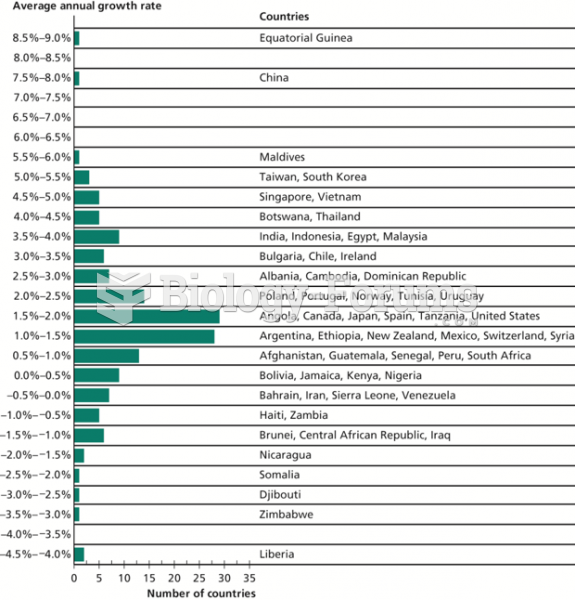|
|
|
After 5 years of being diagnosed with rheumatoid arthritis, one every three patients will no longer be able to work.
Medication errors are more common among seriously ill patients than with those with minor conditions.
Before a vaccine is licensed in the USA, the Food and Drug Administration (FDA) reviews it for safety and effectiveness. The CDC then reviews all studies again, as well as the American Academy of Pediatrics and the American Academy of Family Physicians. Every lot of vaccine is tested before administration to the public, and the FDA regularly inspects vaccine manufacturers' facilities.
The term bacteria was devised in the 19th century by German biologist Ferdinand Cohn. He based it on the Greek word "bakterion" meaning a small rod or staff. Cohn is considered to be the father of modern bacteriology.
There are over 65,000 known species of protozoa. About 10,000 species are parasitic.


![A plant grown from a [round, yellow] seed is crossed with a plant grown from a [](https://biology-forums.com/gallery/47/medium_106027_28_09_14_7_14_15.png)




